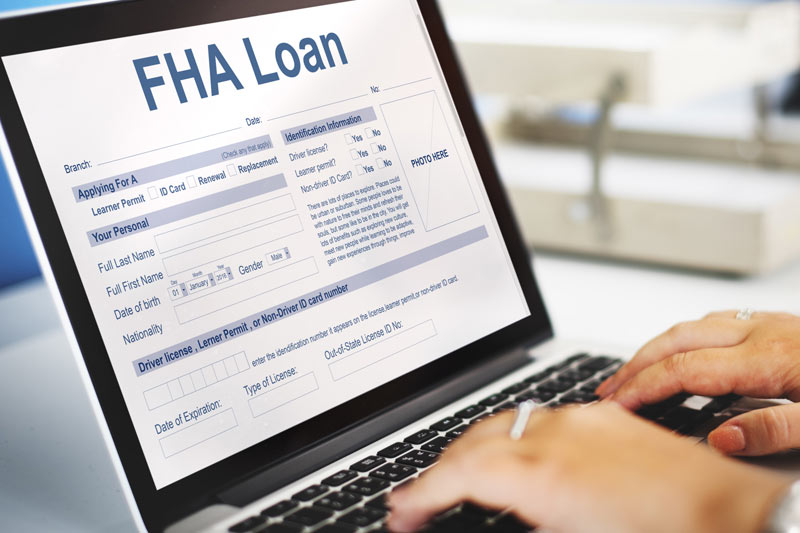The Federal Housing Administration, since its inception in 1934, has helped over 40 million people realize their dream of homeownership. These days, with their lower credit score and down payment requirements, FHA loans are still instrumental in helping many people buy homes.
However, to qualify for an FHA loan, borrowers must fit certain criteria. Additionally, the loans are subject to certain limitations. FHA loan limits differ depending on the geographical area of the home you are trying to buy. Let’s look at FHA loans in New Jersey, the individual FHA county limits, and how they are determined.
How to Qualify For FHA Loans in New Jersey
The FHA does not give out its own money for loans. Instead, borrowers apply with an FHA-approved lender and the FHA guarantees your loan. In return, you have to pay mortgage insurance premiums to the FHA. Mortgage insurance costs 1.75% upfront (you can roll it into your loan if necessary) and then you pay monthly premiums equal to between 0.45% to 1.05% of the loan amount per year for the life of the loan. To get rid of this mortgage insurance, you have to refinance.
FHA loan requirements are a bit more lenient than typical conventional requirements. This leniency helps home buyers qualify for a mortgage when they otherwise would not be able to.
Down Payment Requirements
Traditionally, lenders prefer applications in which the borrower is planning to make at least a 20% down payment. This down payment is not always a requirement, but it certainly helps strengthen your application. Unfortunately, the average home value in New Jersey is $342,527, 20% of which is $68,505 — not exactly small change.
FHA loans make it easier to save a down payment by only requiring 3.5%. In our example, that becomes a much more manageable, $11,988.
Credit Score
With a 3.5% down payment, the FHA will accept a credit score as low as 580, an improvement over conventional loan types whose requirements hover around 620-640. If you put at least 10% down, they will even accept a score as low as 500. However, remember that the lender may have its own minimum score. Not to mention, the higher your score, the cheaper your loan as you can qualify for a lower interest rate.
Debt-to-Income Ratio
Finally, you should have a debt-to-income ratio of 43% or less. With certain compensating factors, such as extra cash or a small increase in mortgage payment, it can be higher (up to 56%).
FHA Loan Limits
The purpose of the FHA is to help low- to moderate-income buyers purchase a home. To that end, the FHA imposes lending limits and borrowers cannot get a loan for a more expensive property.
The minimum national FHA loan limit for 2020 is $331,760. This limit is the “floor” and is the limit imposed in low-cost areas where this amount is less than 115% of the median home price. However, median home prices in parts of the country, like many places in New Jersey, are already higher than this limit. Without the FHA loan option, lower-income buyers are effectively priced out of the market.
To account for this, FHA lending limits also have a “ceiling.” For 2020, it is $765,600.
The floor and ceiling limits are based on the national conforming loan limit, which for 2020 is $510,400. The floor is 65% of this amount and the ceiling is 150%. Lending limits can vary between this floor and ceiling depending on the location of the property you are looking to buy.
Why Do FHA Lending Limits Vary by County?
As you probably already know, median home prices can vary quite dramatically even within a small geographical area. New Jersey is a small state but the average home price in Trenton is only $69,805 while over in Ocean City on the coast it is an astonishing $608,072!
Obviously, statewide lending limits would be highly inaccurate in some areas. This reason is why there are FHA county loan limits in New Jersey.
FHA county limits are determined by the median home price of the area. It is set at 115% of the median home price, as long as that amount falls between the floor and the ceiling. If it is lower or higher, the limit is set at the floor or ceiling amount.
FHA County Loan Limits in NJ
Prices are on the rise in New Jersey and many counties in our beautiful state cap out at the FHA’s ceiling limit of $765,500. These include:
- Bergen
- Essex
- Hudson
- Hunterdon
- Middlesex
- Monmouth
- Morris
- Ocean
- Passaic
- Somerset
- Sussex
- Union
Cape May County is by itself with a limit of $414,000, while several counties come in right behind at $408,250. These are:
- Burlington
- Camden
- Gloucester
- Salem
Then there is Warren County at $372,600, Mercer at $345,000, and Atlantic and Cumberland on the floor at $331,760.
As you can see, there is quite a bit of variance in FHA loan limits within New Jersey. You will need to know where you want to buy before you start figuring out your finances.
Buying Property in New Jersey
FHA loans are an excellent option for those looking to purchase a home in New Jersey. While you may not meet the down payment or credit score requirements for a conventional loan, you can qualify with the FHA’s backing.
While FHA loans in New Jersey are slightly more expensive than typical mortgages (because of the mortgage insurance), it is often the best way for first-time homebuyers to enter the market. Saving up for a large down payment can be difficult when you are throwing money away in rent every month, but with a mortgage, you are building equity.
Curious if an FHA loan is right for you? Contact us today here at 7th Level Mortgage. We are happy to put our considerable experience to work for you to help you figure out the financial logistics and get the best deal on the right loan for your situation. You can finally fulfill your dream and become a homeowner!
7th Level Mortgage is a leading one-stop mortgage company providing deeply informed, custom-tailored assistance with every phase of each mortgage transaction. If you are searching for a home loan in New Jersey, Pennsylvania, Virginia, Delaware, Maryland, New York, or Florida, please contact us today so that we can determine the best Mortgage Lender to place your loan with and get you the best possible rate and program.

